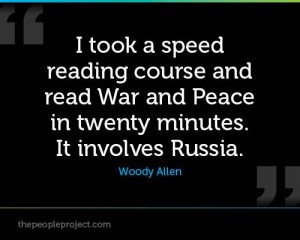I have recently undertaken a new project at work for cultivating reading skills among students about to attend college, and developing a series of online tutorials. The purpose of the program is to create brief workshops that students can participate in at their leisure, delivered in short bursts. Each tutorial ranges from 5 to 10 minutes and focuses on only one key aspect. So far the program is in the beta stages and extends only to English and math, core principles that are thought to help students succeed in a majority of their general education courses. I can’t speak for the math aspect of it too much (as I am obviously in the English section of it all), but math principles extend into the the sciences as well. My focus is within fostering reading and grammar skills beneficial not only in future English courses, but the humanities as a whole, considering adequate English skills are necessary for success in a majority of these classes. Looking at numerous studies it has become apparent most students who don’t do well in history, psychology, sociology, and even geography and astronomy, fail because they are unable to read and understand the textbooks (yes, I know, did we really need a study for this?).
Right now the project is pretty small: me, my counterpart in the math department, and a few others on and off campus for support. The project is run by a team at UCLA who have been extremely generous with their resources and funding, and overall very supportive.
My immediate goal is to create the workshops, which is actually a pretty fun process. After I get the basic concepts organized, I narrow each down to one fundamental principle. For example, right now I am focusing on skimming/scanning a passage for pertinent information and discerning its topic/scope. I create the entire thing in powerpoint, but instead of actually using the antiquated system, I separate out the slides as screen shots, create a video with a voice over that allows me to insert the slides as jpgs whenever I need them, and use Zaption to make the whole thing interactive.
I am fine tuning the verbal versus visual aspect of it since I don’t necessarily want to read what appears on the slides. Enough research has demonstrated that when the verbal and visual cues are aligned, the receiver experiences a disconnect and cannot grasp either. Since it is ultimately a video I am experimenting with pauses and overall timing to cue the images. And because this particular tutorial focuses on reading comprehension, you can imagine there are some lengthy reading slides, but I am assuming that if I don’t give them enough time they can also pause the clip to finish reading before I continue with the instruction. Another problem I am having is that I happen to talk too fast. I have now rerecorded this several times, speaking at a rate that I feel is abnormally slow, but within the recording sounds a lot better (maybe this is what my students keep complaining about!).
What I love about Zaption is the interactive aspect where I can insert multiple choice and open ended questions right into the video for students to answer, while also being able to play back instant feedback for each choice (open ended question are a little more tricky and rely on key words used in the answers to deliver the appropriate feedback.. I am sure you can imagine the problem there).
I have been tweaking and playing with it for two weeks trying to get it just right, and while it is still all in the developmental stages, we all expect to go live and national throughout different colleges with this by fall.
Obviously I only have one tutorial so far, but the the idea is that once the process is more or less figured out, and we have a template of sorts, creating more within the same subject should progress more quickly. I am pretty excited to see how all this pans out, and with any luck I should have a small army of these workshops ready to go before the end of the year. Hopefully by next summer we will have enough student feedback to adjust the program as necessary and in the next few years hopefully recruit others across the country to create even more of these until we have workshops to cover every basic skills category out there.
